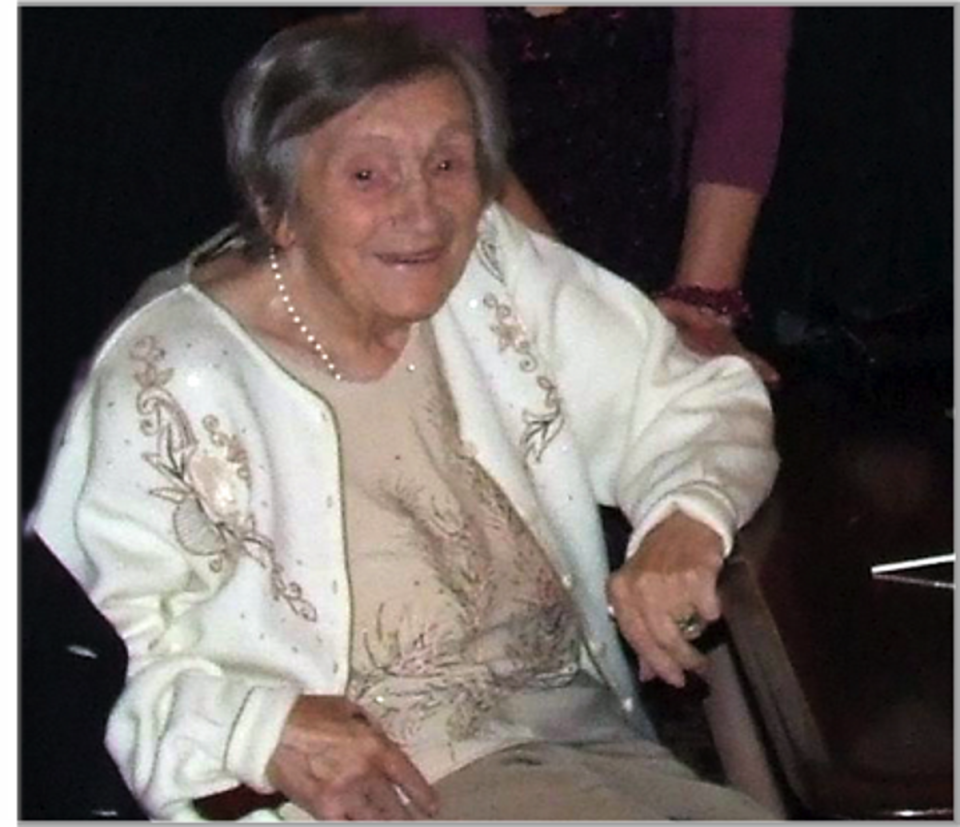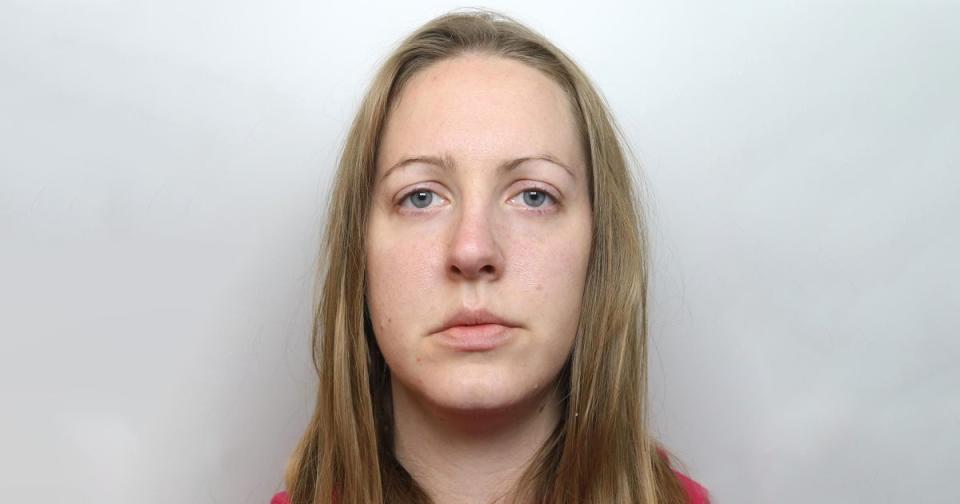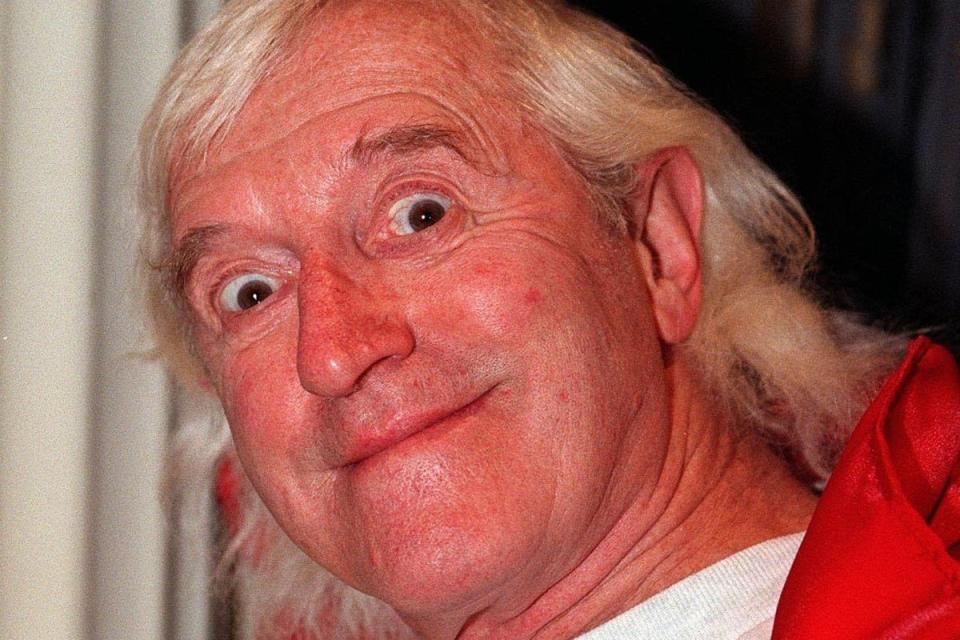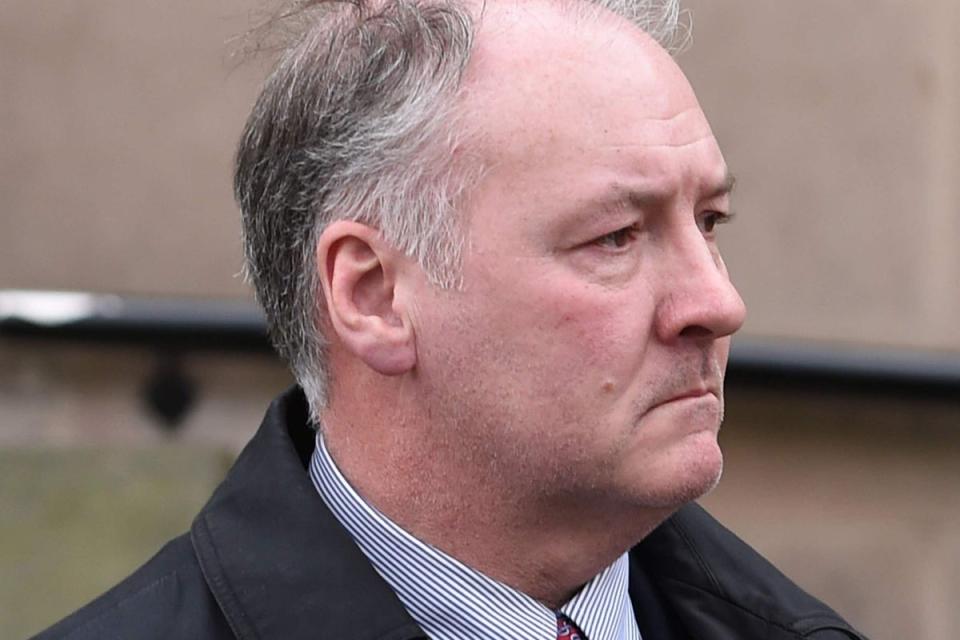Politicians and NHS criticised as they fail to carry out actions urged by Jimmy Savile inquiry after 10 years

The NHS and government have failed to implement a single recommendation from a key Jimmy Savile inquiry – almost 10 years after plans to prevent future sex abuse of patients in hospitals were put forward, The Independent can reveal.
The shocking discovery was uncovered by the panel tasked to chair the public inquiry into Lucy Letby, the nurse who killed several newborn babies in her care.
Analysing the progress made by the NHS and government after some of the most high-profile health scandals in the UK, it found across 30 inquiries, dating back to 1967, just 302 out of more than 1,400 key recommendations had been adopted.
The revelation calls into question the point of public inquiries undertaken by successive Conservative and Labour governments at the cost of millions of pounds to the taxpayer – 20 inquiries were published under the Tory government and 10 under Labour.
Alan Collins, a lawyer who represented dozens of victims in claims against Savile’s estate, slammed politicians and public bodies over the failure.
He says: “The thread that runs through the numerous reports, the investigations behind them, and the ongoing failures with lack of implementation is the lack of accountability.
“We have seen time after time the lack of professional curiosity in the face of glaring wrongdoing yet this cultural vacuum rarely sees those charged with responsibility for safeguarding subject to any consequences.”
Savile inquiry recommendations included:
All hospitals should develop a policy agreeing to and managing visits by celebrities, VIPs and other official visitors.
All trusts should undertake regular reviews of plans to keep staff and patients safe and the behaviour of management.
All trusts should undertake background checks on their staff and volunteers every three years.

The report comes as the infected blood scandal public inquiry made its report this week, with its chair Sir Brian Langsfield promising to check his recommendations are being implemented.
Among the inquiries reviewed by the Letby Inquiry are the Mid Staffordshire hospitals scandal, where 400 deaths were attributed to “appalling” care; and reports into breast surgeon butcher Ian Paterson and serial killer GP Harold Shipman.
Earlier this year The Independent revealed tens of thousands of incidents of sexual assault and harassment have been recorded across NHS mental health hospitals, and have also exposed risks of sexual abuse within ambulance services.
Julie Bailey, whose mother died at Stafford Hospital and whose campaigning triggered that public inquiry, told The Independent it was “soul-destroying” to learn that the majority of the 290 recommendations had not been acted upon.

She says: “When we fought for the Mid Staffs inquiry, there was an inquiry 10 years before, the Bristol heart inquiry had the exact same recommendations but 10 years on, not listening to patients and relatives and not listening to those within the system that raise concerns.
“Everybody said to us, why waste another 15 million on another inquiry, but we thought no, this time it’s going to be different but here we are 10 years later, and we’ve got similar failings.”
Thirlwall’s inquiry was asked to look at previous healthcare inquiries to see whether recommendations on culture changes within the NHS had been implemented. It covered both statutory inquiries, with more powers including compelling witnesses to appear, and non-statutory ones ordered by ministers.
This comes after several doctors blew the whistle claiming they tried to raise concerns about Letby to managers at the Countess of Chester Hospital.
Jacob Lant, chief executive for National Voices, which represents patients across the NHS, says: “The fact the system is routinely failing to take action on inquiry recommendations shows how far away we are from an NHS that listens to and learns from patients.”
In October 2012 Baroness Kate Lampard was asked by former health secretary Jeremy Hunt to report on prior investigations into the abuse former BBC presenter Jimmy Savile committed while on NHS premises.

Baroness Lampard, who is now leading a new public inquiry into the deaths of 2,000 mental health patients in Essex, published her oversight report in 2015.
Thirlwall’s review found no evidence that any of the 13 recommendations of Lampard’s review accepted by the government, out of the 14 made, have been fully put into action.

Among some of the biggest scandals committed by individuals in healthcare, breast surgeon Ian Paterson was found to have carried out unnecessary and unapproved procedures on more than 1,000 breast cancer patients over 14 years while working in NHS and private hospitals.
In December 2017, after he was convicted, the government commissioned an inquiry by Bishop Graham James into his malpractice. Across 11 key recommendations, which include protections for patients treated in the private sector, just two have been marked as complete.
Debbie Douglas, a victim of Paterson, has campaigned for a decade for justice and tells The Independent it is “disgusting” the government has failed to implement the majority of recommendations.
“It’s about the health of every patient in this country... if the government put as much energy into swerving these recommendations as to implementing them, they would have been implemented years ago.”
Thompsons Solicitors, which is representing victims of Paterson in negligence cases and upcoming inquests, tells The Independent: “It is deeply concerning to see that so few of the recommendations made by Bishop James have been implemented more than four years after the Paterson Inquiry report was published.”
Rachel Power, from charity the Patients Association, said: "When independent inquiries publish reports we often comment on how the failings uncovered are the same as failings identified in previous inquiries and the fact the NHS does not seem to learn from errors.
“This analysis by Thirlwall Inquiry sheds light on why that may be, showing, as it does, how few recommendations have been implemented over the last 30 years.”
An NHS spokesperson said: “While this initial assessment only captured publicly available information, NHS England is continuing to fully co-operate with all requests for evidence, information and relevant documents as a core participant to the Thirlwall Inquiry.
“The NHS is committed to continuously improving patient safety – while there is more to do, it is continuing to take action to address key themes identified by previous inquiries, including launching a Three-Year Delivery Plan to make maternity and neonatal care safer, implementing a new Patient Safety Framework and issuing updated Freedom To Speak Up guidance to ensure all staff have easy access to information on how they can raise concerns.”
A Department of Health and Social Care spokesperson said: “The safety of all patients is paramount. This is why we have implemented a substantial programme of patient safety initiatives as a result of responses to inquiries and wider initiatives over the last decade.”
This story was updated 08:52 with a response from NHS England.


